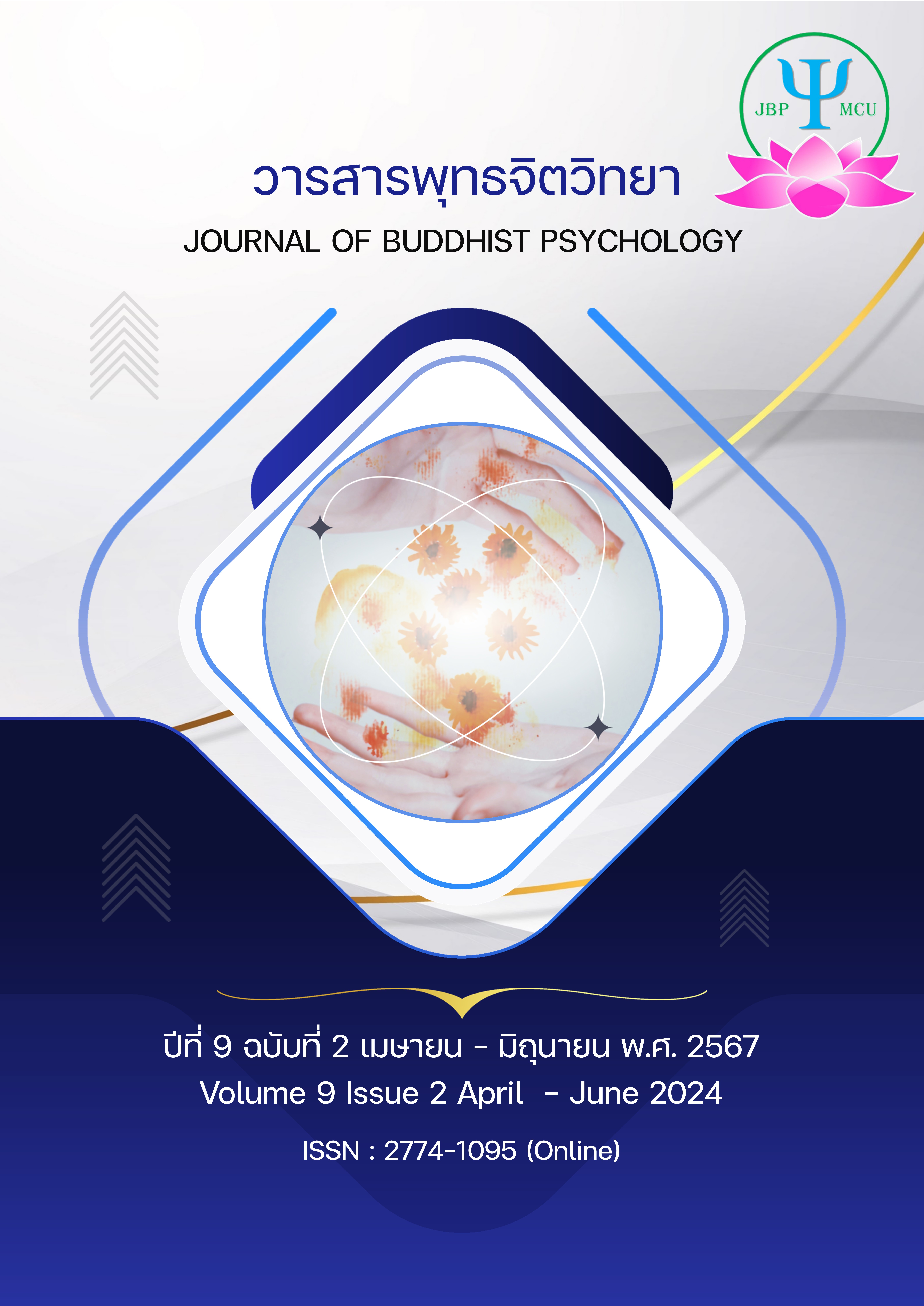The Connection between Buddhist Philosophy and Social Work in Thai Society
Main Article Content
บทคัดย่อ
Buddhism plays a significant role in Thai society, and the majority of Thai people have believed in Buddhism for a long time. Monks, who serve as priests in Buddhism, assume the role of spiritual leaders. The Buddhist proverb, “Atta hi attano nātho,” which translates to “Oneself is one’s own refuge”, is closely aligned with the fundamental philosophy of social work “helping people to help themselves.” While Buddhism focuses on holistic development, it gives importance to the equality of all human beings, whether it is a group of children, women, youth, the poor, the disabled, the elderly, or the underprivileged. This concept is encompassed in the four Saṅgahavatthus: Dāna, Piyavācā, Atthacariyā, and Samānattatā. The core principle involves aiding people through the teachings of Buddhism, enabling them to integrate these teachings into their lifestyles and attain the goals that constitute life’s purpose, known as the three Attha: Diṭṭhadhammikattha represents the good to be attained in this present life, Samparāyikattha pertains to the good to be achieved in the life to come, and Paramattha signifies the ultimate or highest good. This concept serves as a form of relief aimed at producing outcomes that fulfill life's necessities and aspirations, thus addressing life's challenges. Therefore, this Buddhist concept can support an individual to live happily and peacefully in Thai society.
Article Details

อนุญาตภายใต้เงื่อนไข Creative Commons Attribution-NonCommercial-NoDerivatives 4.0 International License.
เอกสารอ้างอิง
Hoa, P. T. M. (2003). Buddhist Principles on Social Relationship (Doctoral Dissertation). University Of Kelaniya.
Phra Adhikan Paisal Visalo (Wongvorawisit). (2023). Learning the Value of Life. Retrieved September 15, 2023, from https://www.arsomsilp.ac.th/lifestearning-prapaisar
Phra Khru Baidika Surapol Asapo (Yamchum). (2015). Model development of Public Welfare Works according to the Buddhist Paradigm. Bangkok: Mahachulalongkornrajavidyalaya University.
Phra Maha Santi Thanvaro (Prasobsuk). (2018). The Application of Buddhist Principles in Public Welfare Work of the Sangha in Thung Khru District, Bangkok (Master’s Thesis). Mahachulalongkornrajavidyalaya University.
Phra Maha Seri Putthrakkhito. (2009). Buddhist Social Work. Retrieved February 15, 2023, from https://shorturl.asia/tnOXQ
Phra Samu Charan Carudhammo (Charucharoenwong). (2012). The Religious Role of Public Welfare of the Ecclesiastical Officers in Nakhon Pathom Province (Master's Degree Thesis). Mahachulalongkornrajavidyalaya University.
Rawiwong, Wichit. (1984). Buddhism and Social Work. Kasetsart Journal: Social Sciences, 5 (2), 149-155.
The most Ven. Brahmapundit, Prof. Dr. (Prayoon Dhammacitto). (2019). Religion and the Sustainable Development Goals (SDGs). 2nd edition. Bangkok: Amarin Printing and Publishing Public Company Limited.
Thianya (Sae Kow), Ongpaladsitthisak. (2014). Efficiency Management of Public Welfare of Anam Nikaya Sangha in Thailand (Doctoral Dissertation). Mahachulalongkornrajavidyalaya University.


